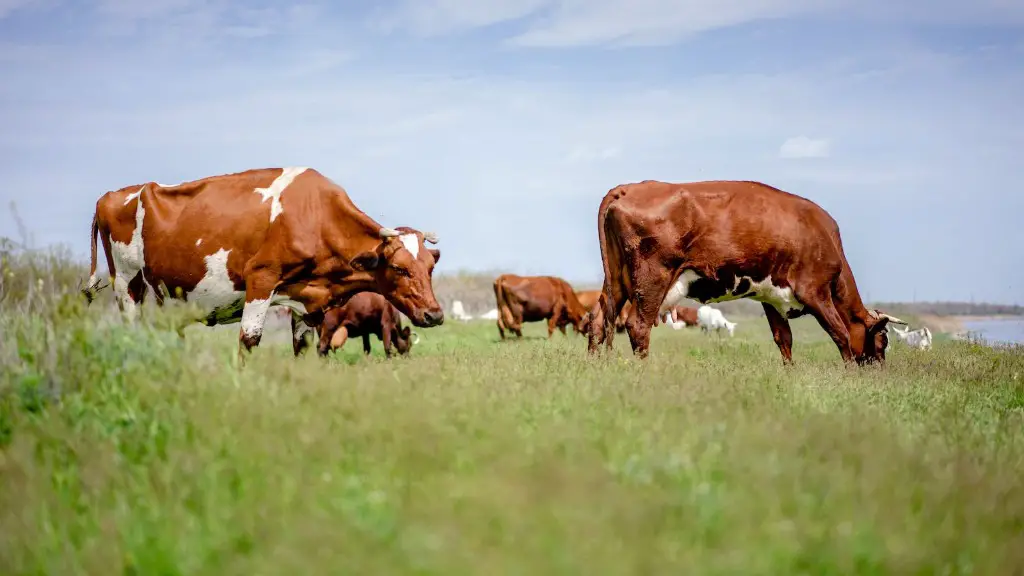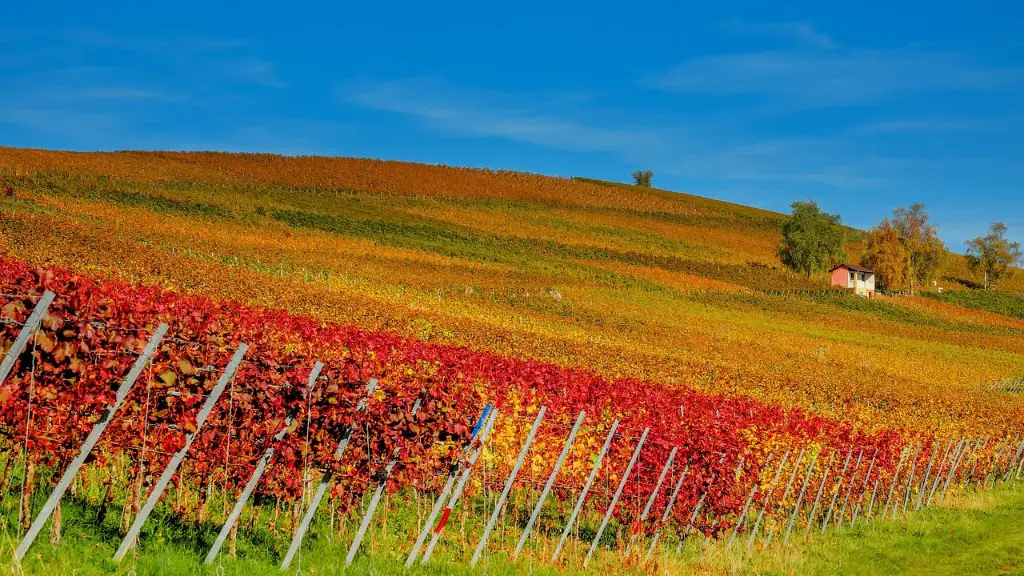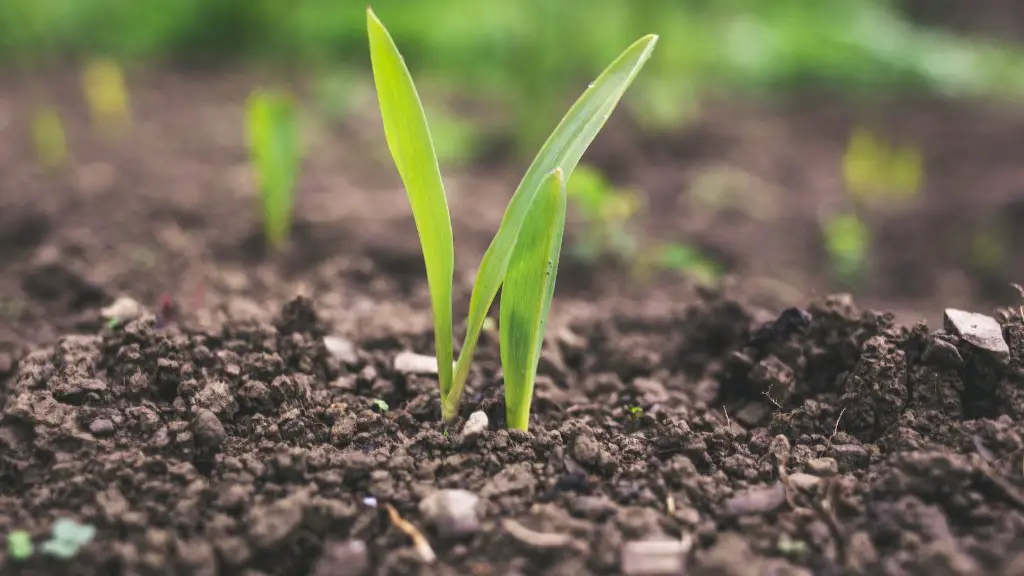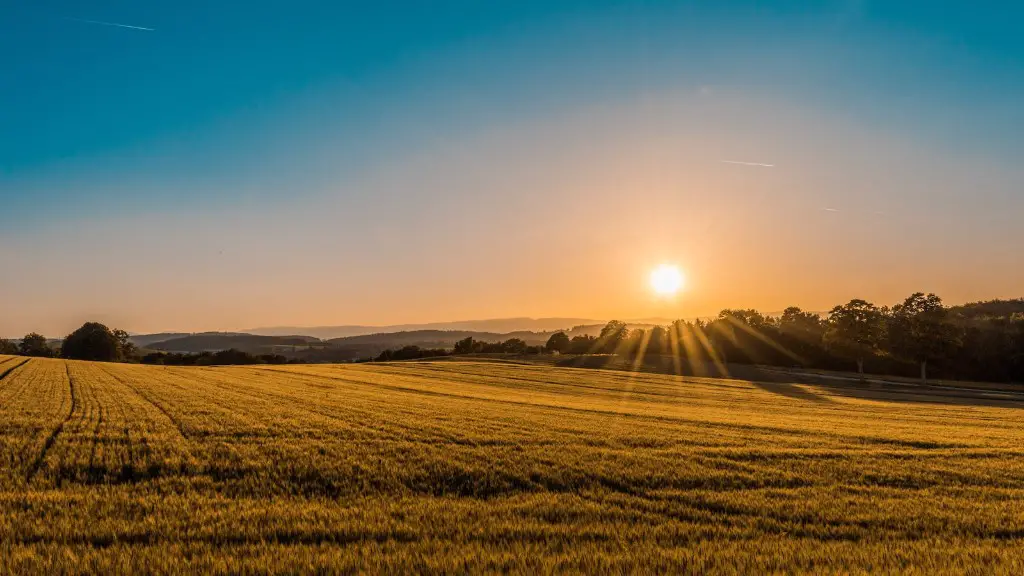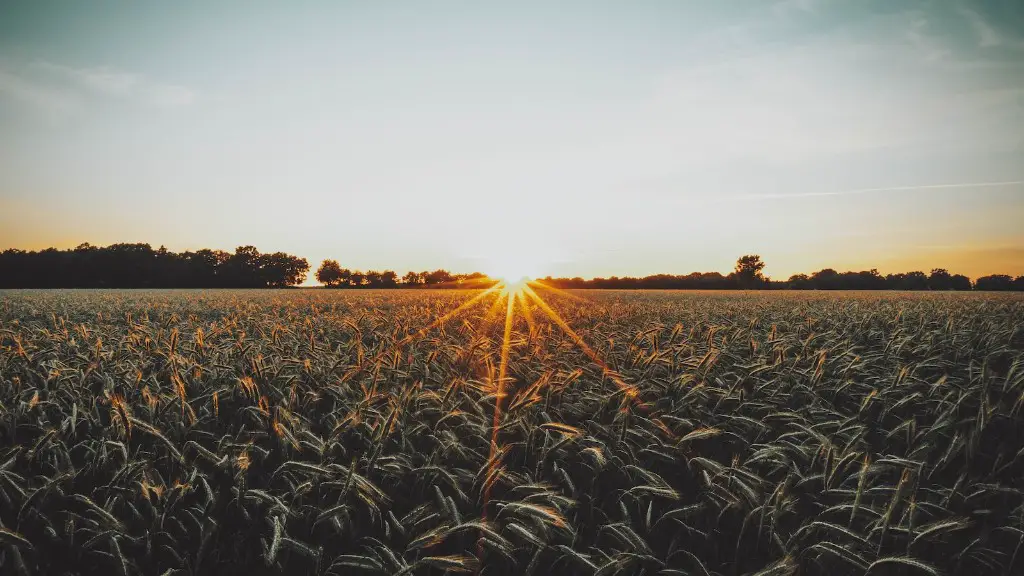The rise of agriculture changed human life in a number of ways. First, it allowed for a more settled lifestyle as opposed to the hunter-gatherer lifestyle that humans had before. This settled lifestyle led to the development of civilizations and eventually cities. Agriculture also allowed for the domestication of animals, which led to the development of transportation and communication.
The advent of agriculture changed human life in a number of ways. First, it allowed for the domestication of plants and animals, which led to the development of civilizations. Agriculture also allowed for the growth of cities and the rise of civilizations. Additionally, it brought about the division of labor and the rise of social classes.
How did agriculture change how humans lived?
More abundant food supplies could support denser populations, and farming tied people to their land. Small settlements grew into towns, and towns grew into cities. Agriculture produced enough food that people became free to pursue interests other than worrying about what they were going to eat that day. This allowed for the development of civilizations.
The Agricultural Revolution was a period of great change for humans. People, who had been hunters and gatherers before, were starting to become farmers. Farming allowed people to produce more food than they could actually eat. The extra food provided by agriculture meant that some people did not have to spend their time gathering food. This allowed them to dedicate their time to other pursuits, such as art, religion, and science. The Agricultural Revolution was a major turning point in human history and led to the development of civilization as we know it today.
How did the Agricultural Revolution impact human
The agricultural revolution had a variety of consequences for humans. It has been linked to everything from societal inequality—a result of humans’ increased dependence on the land and fears of scarcity—to a decline in nutrition and a rise in infectious diseases contracted from domesticated animals.
Agriculture has been a crucial part of human civilization for millennia. It allowed for the growth of cities and the rise of complex societies. Today, agriculture continues to be a vital part of the global economy. It provides food for billions of people and employs millions of workers. agriculture also plays a key role in environmental conservation.
How did agriculture impact us?
Agriculture has been a vital part of the US economy for centuries, and it continues to play a significant role today. In 2021, agriculture, food, and related industries contributed roughly $1264 trillion to US gross domestic product (GDP), a 54-percent share. The output of America’s farms contributed $1647 billion of this sum—about 07 percent of US GDP.
While the agricultural sector has changed dramatically over the years—becoming more mechanized, industrialized, and globalized—it remains an important part of the US economy and a vital part of many Americans’ way of life.
The Agricultural Revolution led to increased experimentation with new crops and new methods of crop rotation. These new farming techniques allowed soil to replenish nutrients, leading to stronger crops and better agricultural output. Advancements in irrigation and drainage further increased productivity.
Why is the agricultural revolution called the most important change in human history?
The ability to grow crops and tame animals changed the way humans lived. They were now able to produce a constant food supply which allowed the population to grow at a faster rate. Nomads gave up their way of life and began living in settled communities.
The Agricultural Revolution was a turning point in human history, and its impact can still be felt today. The ability to cultivate our own food allowed us to stay in one place and led to the growth of human society in terms of culture and technology. The Agricultural Revolution set the foundation for what we know as modern human life.
What are 3 effects of agriculture
While agriculture can have positive effects on the environment, such as increasing oxygen production and improving climate, it can also cause negative effects, such as inorganic nitrate pollution, pesticide pollution, and salinity problems. These problems are especially prevalent in regions where agriculture is intensive.
Agriculture is one of the most important sectors of any economy. It is the main source of raw materials for industries, and it is also a very important part of international trade. Here are 10 reasons why agriculture is so important:
1. It’s the main source of raw materials: Agriculture is the main source of raw materials for many industries, such as textile, paper, and food processing.
2. It’s important to international trade: Agriculture is a very important part of international trade. Many countries export agricultural products, and the sector is crucial for the global economy.
3. It plays a big role in a nation’s revenue: Agriculture is a major source of revenue for many countries. In some countries, agriculture is the main source of income.
4. It provides employment: Agriculture provides employment for many people, both in rural and urban areas.
5. It’s crucial to a country’s development: Agriculture is crucial to the development of many countries. It is a major source of food, income, and foreign exchange.
6. It can help heal the environment: Agriculture can help heal the environment in many ways. For example, sustainable agriculture can help reduce deforestation and soil erosion.
7.
What are positive effects of agriculture?
Urban farming is a great way to help the environment and be more self-sufficient. With minimal transportation requirements and reduced energy use for food production, urban farmers can help lower greenhouse gas emissions. In addition, growing your own food can be very satisfying and provide you with fresh, healthy produce.
The innovations during the 2nd Agricultural Revolution had a profound impact on the world. They greatly increased food production, leading to better diets and longer life spans. As population increased, so did the pool of workers for industry. This had a domino effect, leading to even more advances in technology and industry. We now live in a world that is greatly impacted by the 2nd Agricultural Revolution.
What were the 3 major results of the Agricultural Revolution
Preceding the Industrial Revolution, the Agricultural Revolution was a period of advances in agricultural practices. These included new methods such as crop rotation, selective breeding, and more efficient use of arable land. These innovations helped to increase crop yields and allow for a more efficient use of resources, which in turn helped to support the growing population during the Industrial Revolution.
Agriculture plays a vital role in our society and economy. It provides us with food and other essential products, supports livelihoods and economies, and helps to preserve our environment. Agriculture also plays a key role in culture and tradition, providing us with a unique way of life that is passed down from generation to generation.
How did the Agricultural Revolution Impact humans were those changes good or bad?
The Agricultural Revolution of the 18th century was a major turning point in British history, paving the way for the Industrial Revolution. New farming techniques and improved livestock breeding led to amplified food production, which allowed for a spike in population and increased health. The new farming techniques also led to the enclosure movement, which had a profound impact on British society.
Farming allowed people to stay in one place and not have to travel to find food. They could grow crops or raise animals on nearby land. This led to people living in settled communities and building stronger, more permanent homes. They also surrounded their settlements with walls to protect themselves.
Why was agriculture more successful
The substantial increase in total agricultural production over the past few decades can be attributed to the advent of new technologies, innovations, and process improvements in the farm sector. These advances have allowed farmers to produce more food with less inputs, resulting in cheaper, more bountiful harvests. The future of agriculture looks promising, as further advances in technology and farm management are expected to further increase yields and efficiency.
The Agricultural Revolution was a period of time during which new farming techniques were developed that allowed for the intensification of agricultural output. One of the most important new techniques was the development of crop rotation systems that involved turnips and clover. This system is known as the Norfolk four-course rotation.
Warp Up
Agriculture has changed human life significantly by providing a food source that is more reliable than hunting and gathering. Agriculture allowed for the domestication of plants and animals, which led to the development of civilizations. Agriculture also allowed for the development of different social classes, as those who controlled the food supply had more power than those who did not.
Before agriculture, humans were hunter-gatherers. They moved around in small groups in search of food. This lifestyle changed when agriculture was developed. Agriculture allowed humans to stay in one place and farm the land. They no longer had to worry about where their next meal would come from. This change in lifestyle led to the development of civilizations.
